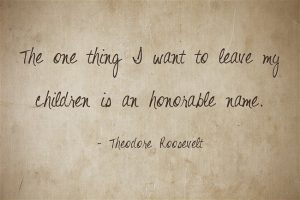
Naming Things
So you are a writer and you have things to name – people, places, countries, animals, monsters, wars, machines, magic spells, conspiracies, historical events, future prophecies. The list goes on and on.
Hints
1) Avoid the name “Will” because it will constantly come up in grammar check as a verb showing up where a noun should be. Just make life easier and avoid this common name. “Bill” works just as well and doesn’t have the issues. (I’ve edited two books with this name so far. Ugh!)
2) Don’t have main character with the same first and last letter in their names. When reading, Ray and Rey ending up looking the same – in addition, this becomes very hard to edit especially when the two characters are talking to each other. Unless you want the characters to blend in your readers mind, try to have everyone start with a different first letter.
3) Make things pronounceable in the language you are writing. Do not just randomly put together letters to create a word – for example “Xchotlogz”. Break out the dictionary and play with real words. This makes the grammar and spell checks easier, and also gives your audiobook voice actor some chance of pronouncing things.
4) You don’t need to be really unique for all the things you name. Remember we have things named “fireplace” and six towns in the state of New Jersey are named “Washington”. Things are often named after people and enter the language as a word – Sandwich for example – others can be found here – http://mentalfloss.com/article/56282/12-things-you-didnt-know-were-named-after-people). Have fun, but don’t sweat it if you name something “Looking Glass” or “Unihorn.”
THINGS NOT TO DO … be overly cute with naming characters.
REASON FOR THE RANT (this time) – Names for men in the menage a trois erotica: Mr. Hardwood and Mr. Woodsman. The woman is Ms. Amor.
Some winking at the reader is allowed … but there is a line.
WRITING EXERCISE: Write down five words or names and research their origins. Example – Wendy (name), Fireplace (item), South Fork River (location), Unicorn (monster/animal), elevator/lift (machine – and why is it different in America vs. UK). This will help give you some ideas of how things have been named in the real world.
READING EXERCISE: Go through the five most recent books you read and choose the three strongest characters of each. How are the names different within the book (spelling and pronunciation and syllables); are the name easy to pronounce based on the spelling; and how well do you remember each character uniquely? Compare the five books – did the names of the three strongest characters impact you ability to read and REMEMBER the story?